Analysis of Australian Pop Culture: Rabbit Proof Fence and Song
VerifiedAdded on 2022/11/30
|5
|914
|330
Essay
AI Summary
This essay delves into the realm of Australian pop culture, offering an in-depth analysis of two significant cultural texts: the movie 'Rabbit Proof Fence' and Archie Roach's song 'Took the Children Away'. The essay explores the representation of heroes and villains within these works, highlighting the bravery of the indigenous girl in 'Rabbit Proof Fence' and the poignant storytelling in Roach's song. It examines the use of language, particularly the Walmajarri language in the film and the language techniques employed by Roach, such as similes and listing, to convey the experiences of Aboriginal people. The analysis further touches upon the rejection of stereotypes and the evolving definition of heroes in contemporary Australian narratives, emphasizing the need to recognize everyday heroes. Overall, the essay provides a comprehensive understanding of the cultural significance of these works and their contribution to the broader discourse on Australian identity and history.
1 out of 5
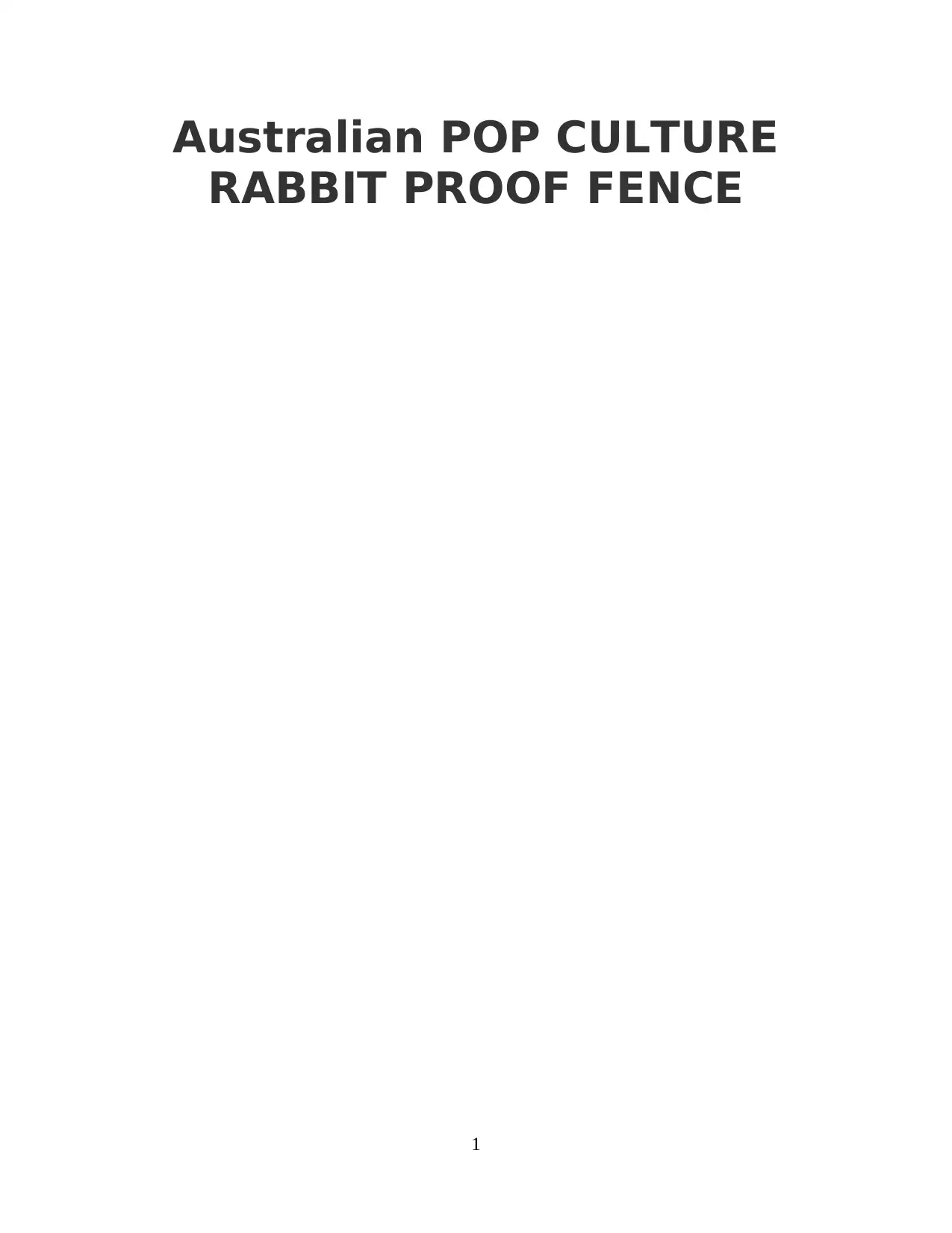
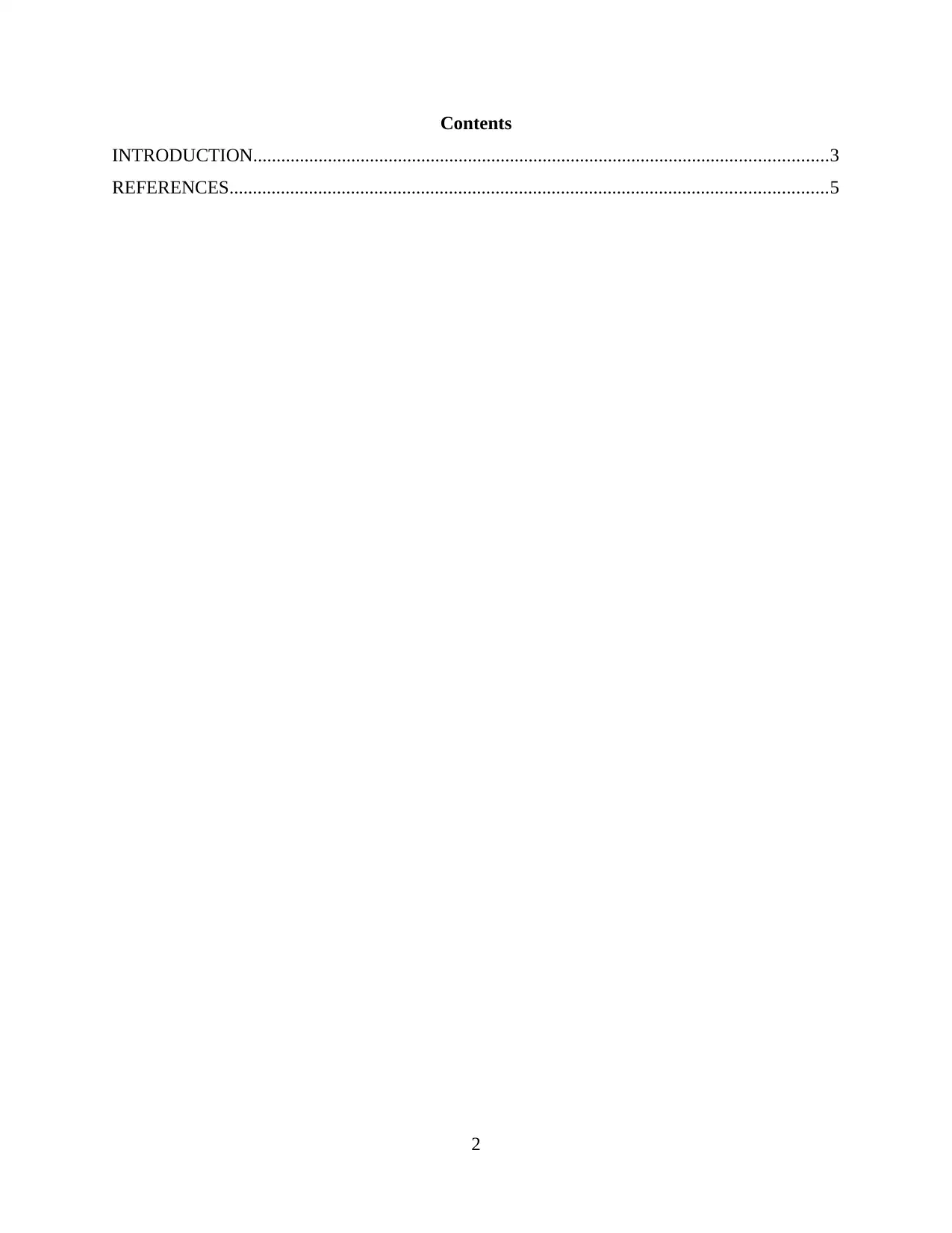
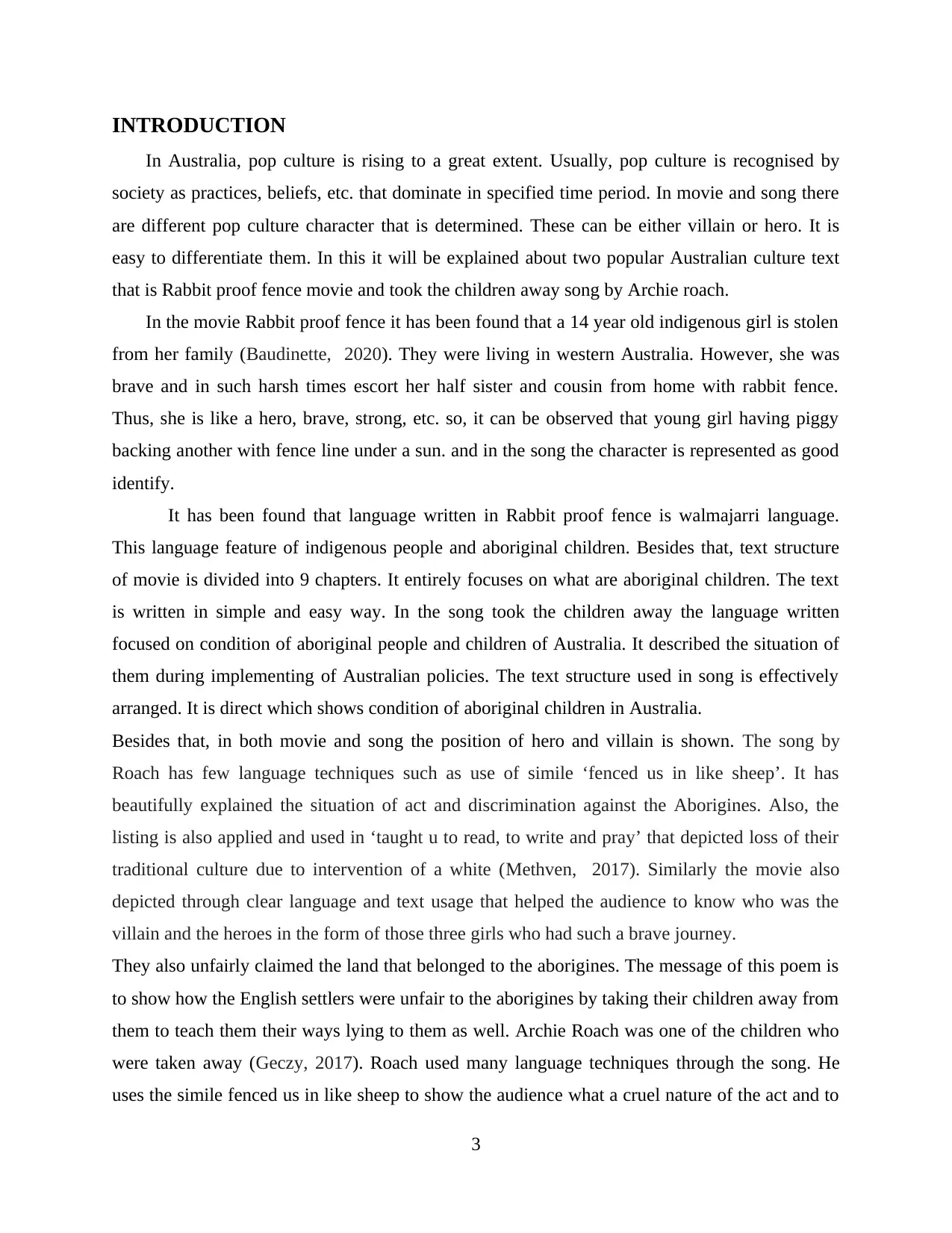

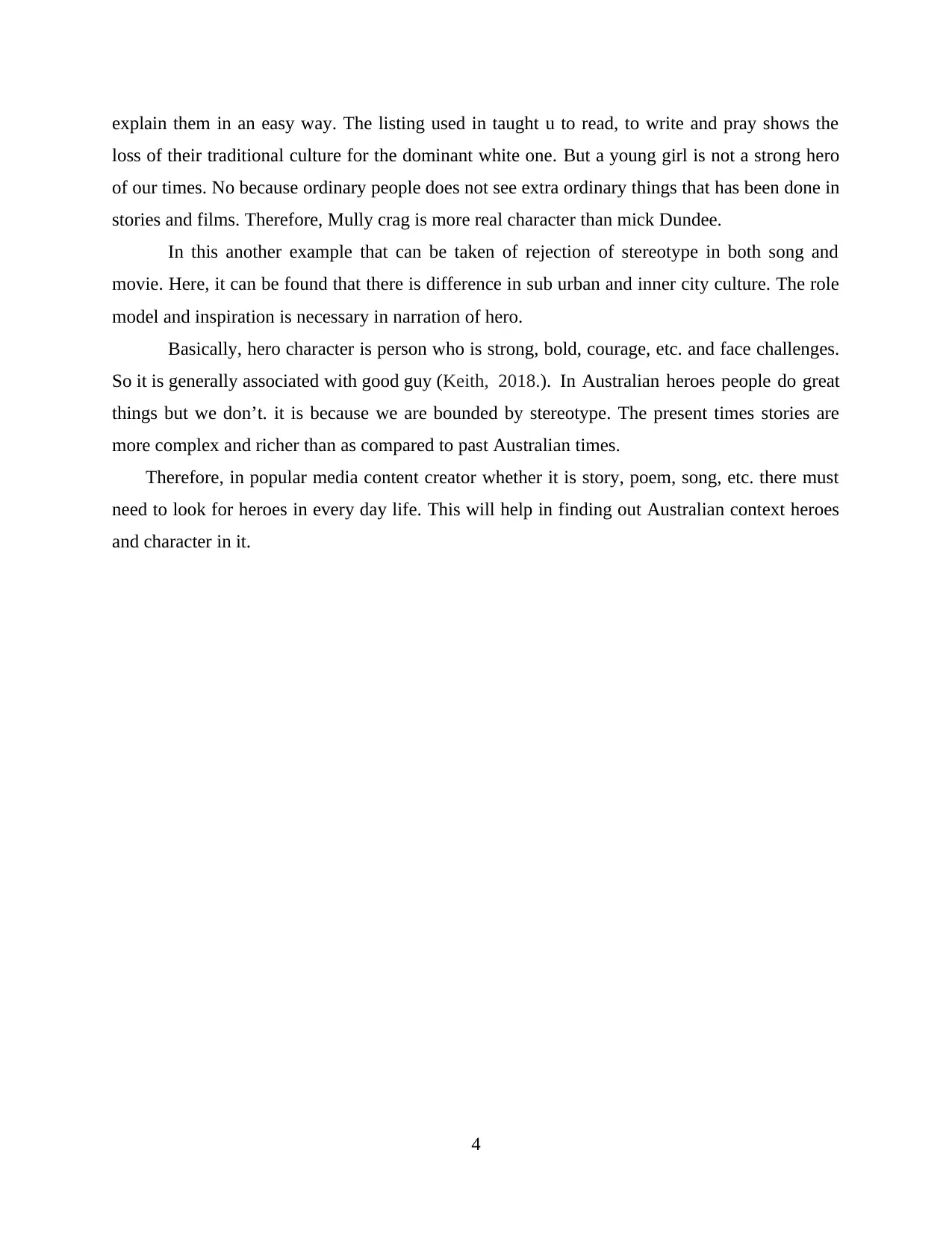
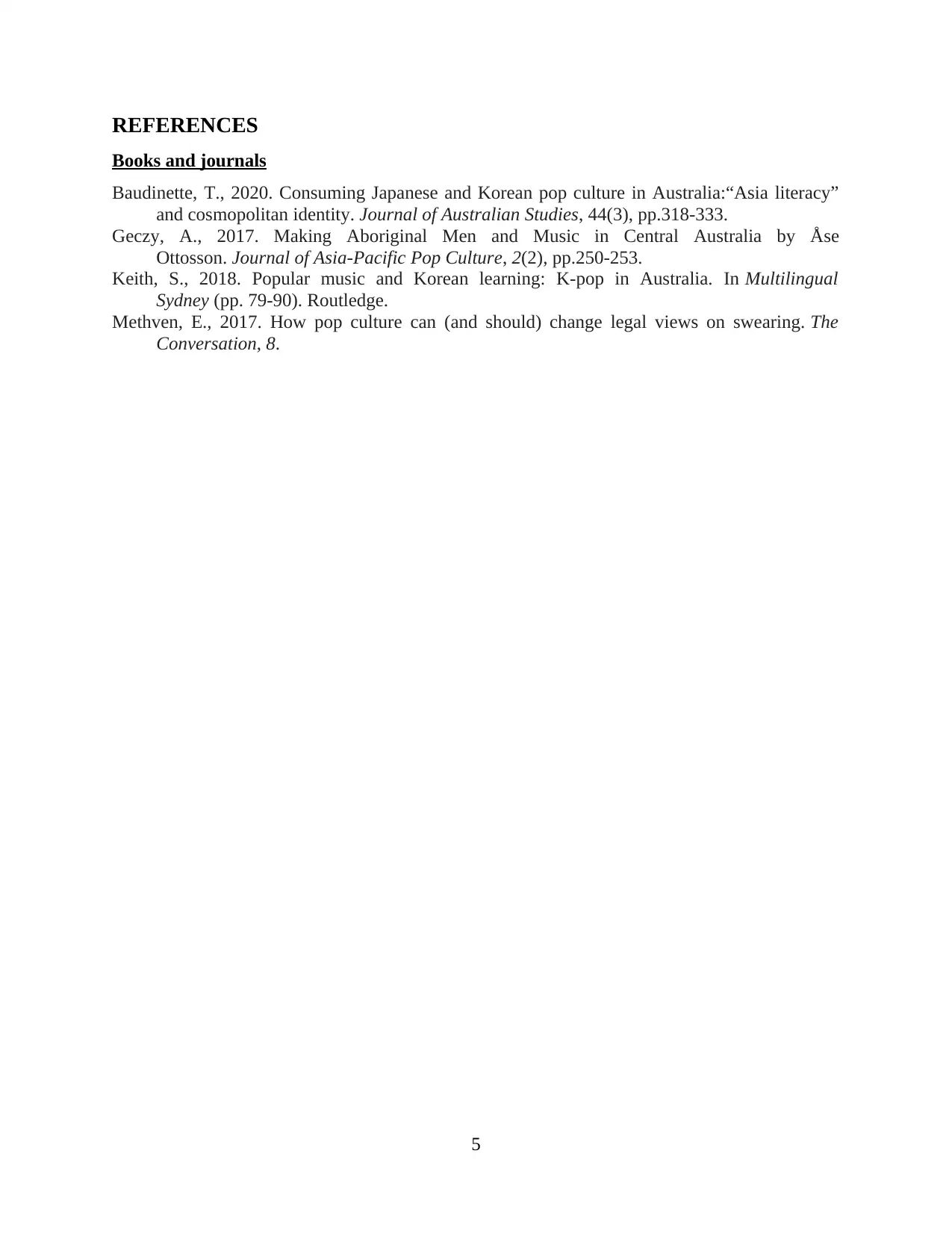


![[object Object]](/_next/static/media/star-bottom.7253800d.svg)